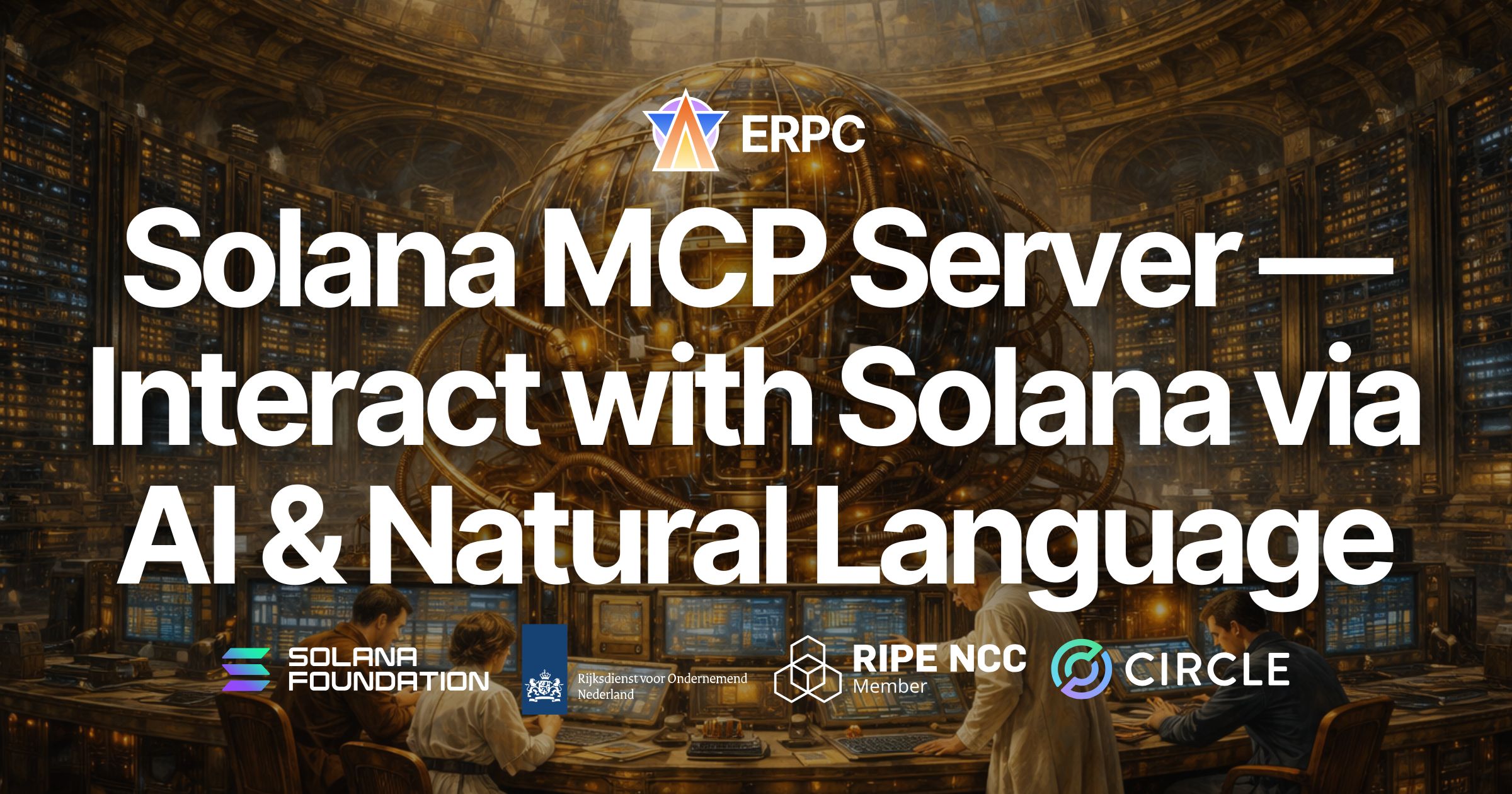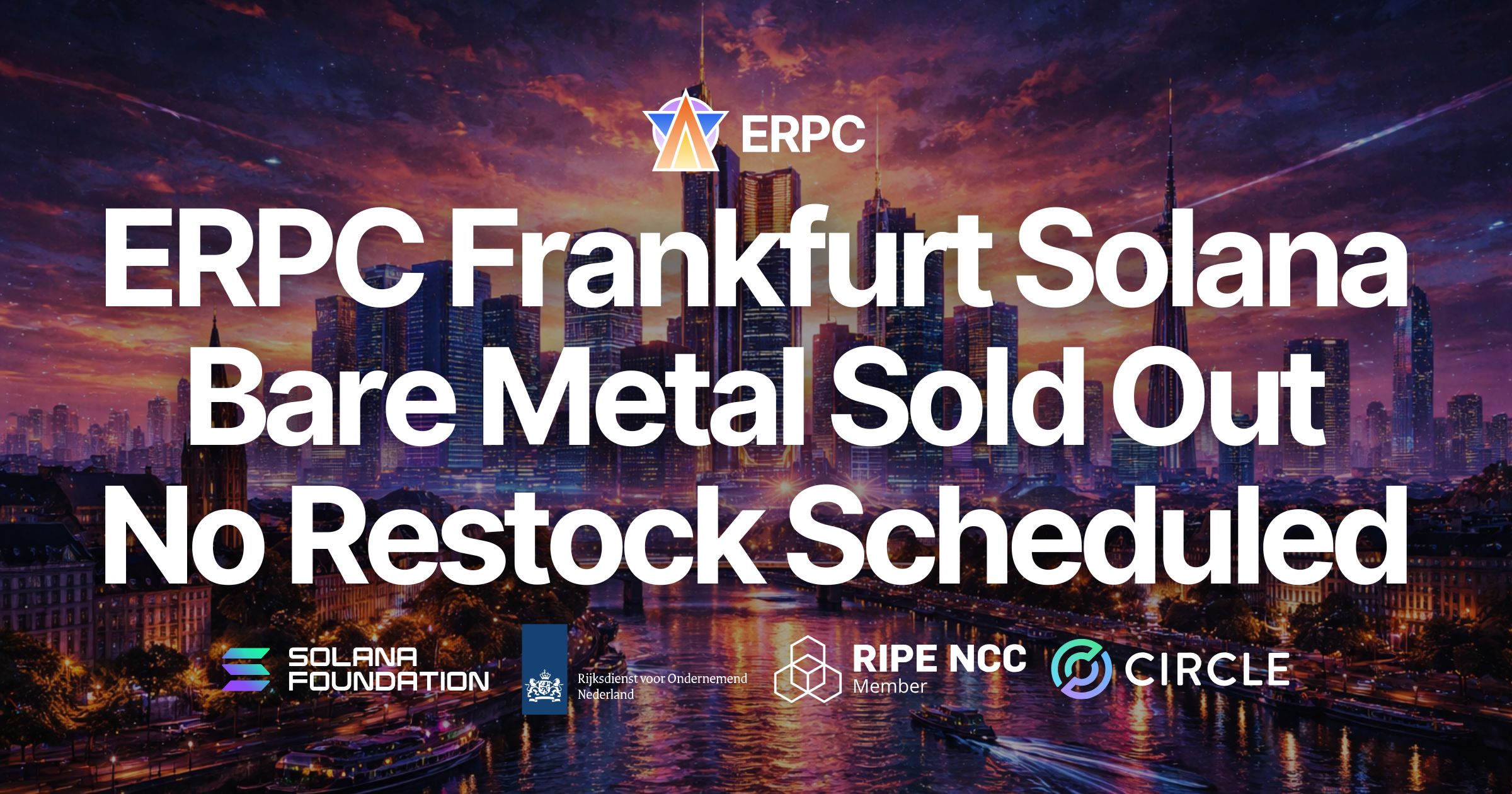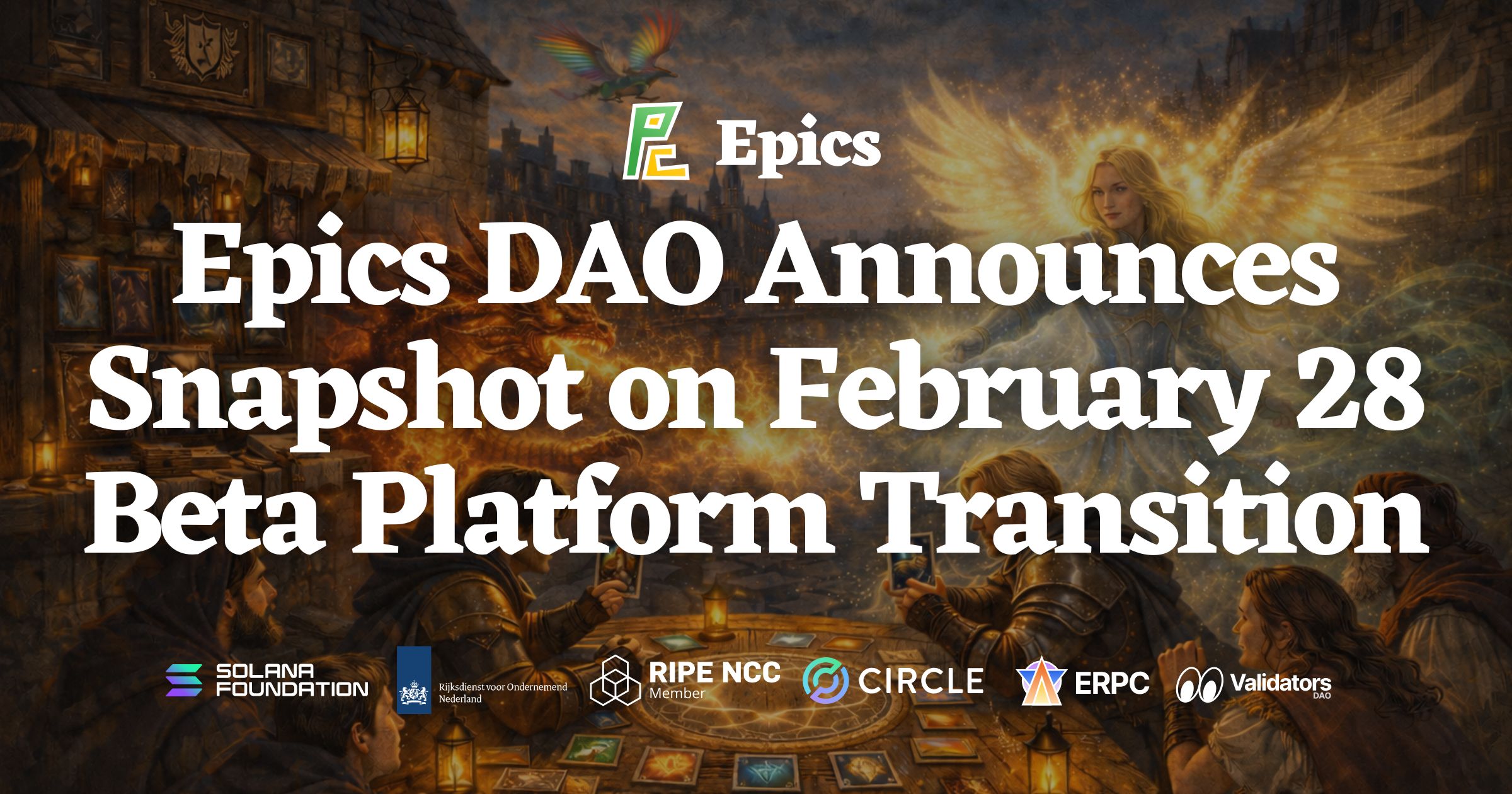ERPC Connects Frankfurt Data Center to Solana DoubleZero Network, Achieving Further Latency Reduction and Stability Through Dedicated SWQoS Endpoint Lines
ERPC Connects Frankfurt Data Center to Solana DoubleZero Network, Achieving Further Latency Reduction and Stability Through Dedicated SWQoS Endpoint Lines
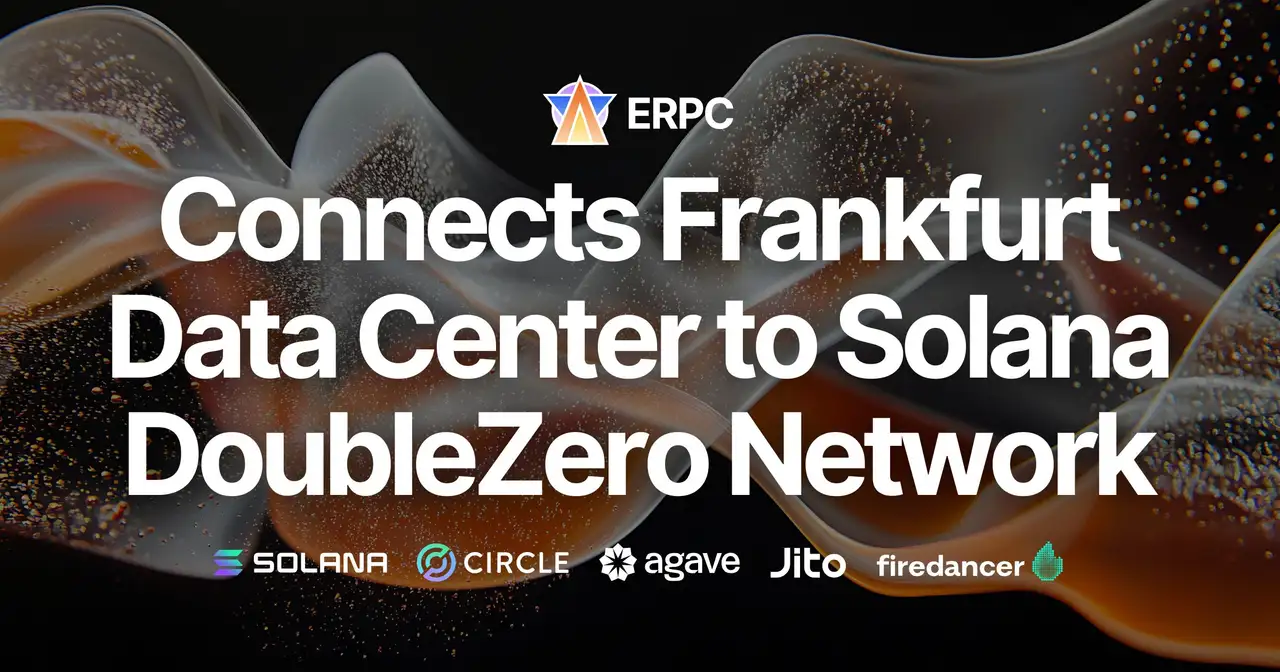
ELSOUL LABO B.V. (Headquarters: Amsterdam, The Netherlands, CEO: Fumitake Kawasaki) and Validators DAO have announced that ERPC has connected its Frankfurt region data center to Solana’s dedicated line network “DoubleZero.”
Through this integration, both the SWQoS endpoint and the Epics DAO validator now utilize dedicated lines, achieving further reductions in latency and greater operational stability. This enhances the overall resilience of the Solana network and improves performance across the entire ERPC platform.
Background
ERPC has continuously worked to improve communication quality across the Solana network in collaboration with trusted data center partners. With the Frankfurt region data center’s official participation in Solana’s dedicated line network “DoubleZero,” these ongoing efforts have reached a new stage of advancement.
This connection directly links the SWQoS endpoint and Epics DAO validator within the same facility over DoubleZero, shortening the communication path compared to traditional routes. As a result, a network architecture balancing low latency and high stability has been established, contributing to improved reliability across the Solana network.
What Is the DoubleZero Network?
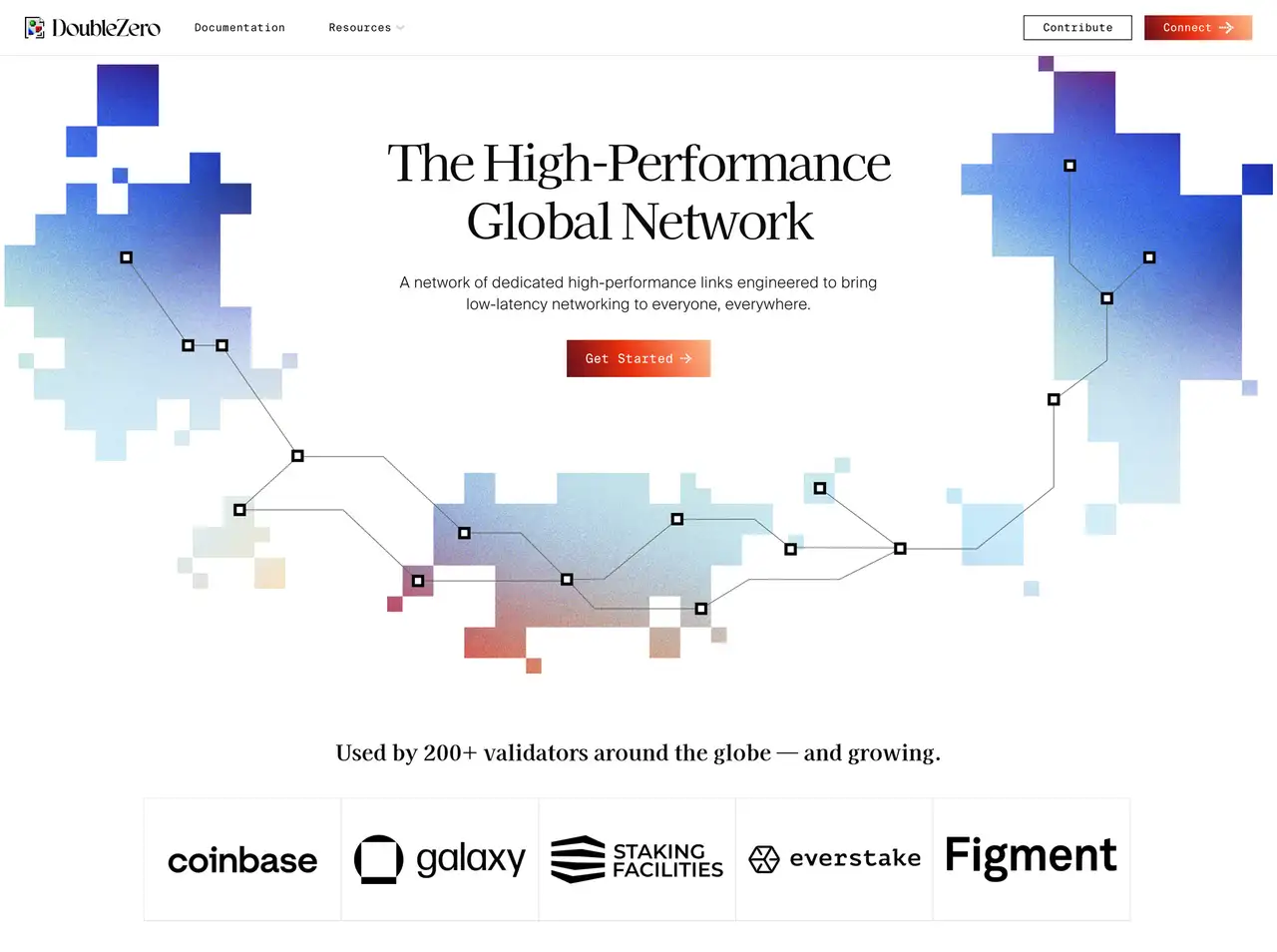
DoubleZero is a dedicated line network connecting over 200 Solana validators, including Coinbase and Galaxy. It establishes the shortest possible communication routes between validators and RPC nodes, bypassing the public internet to avoid congestion and route fluctuations while simultaneously expanding bandwidth and reducing latency.
With the full integration of the Frankfurt data center infrastructure into DoubleZero, multiple communication methods—such as Shredstream, gRPC, and SWQoS RPC—now operate entirely within this dedicated network. This configuration greatly strengthens response speed and stability across the Solana network.
DoubleZero: https://doublezero.xyz/
Growth of the Epics DAO Validator
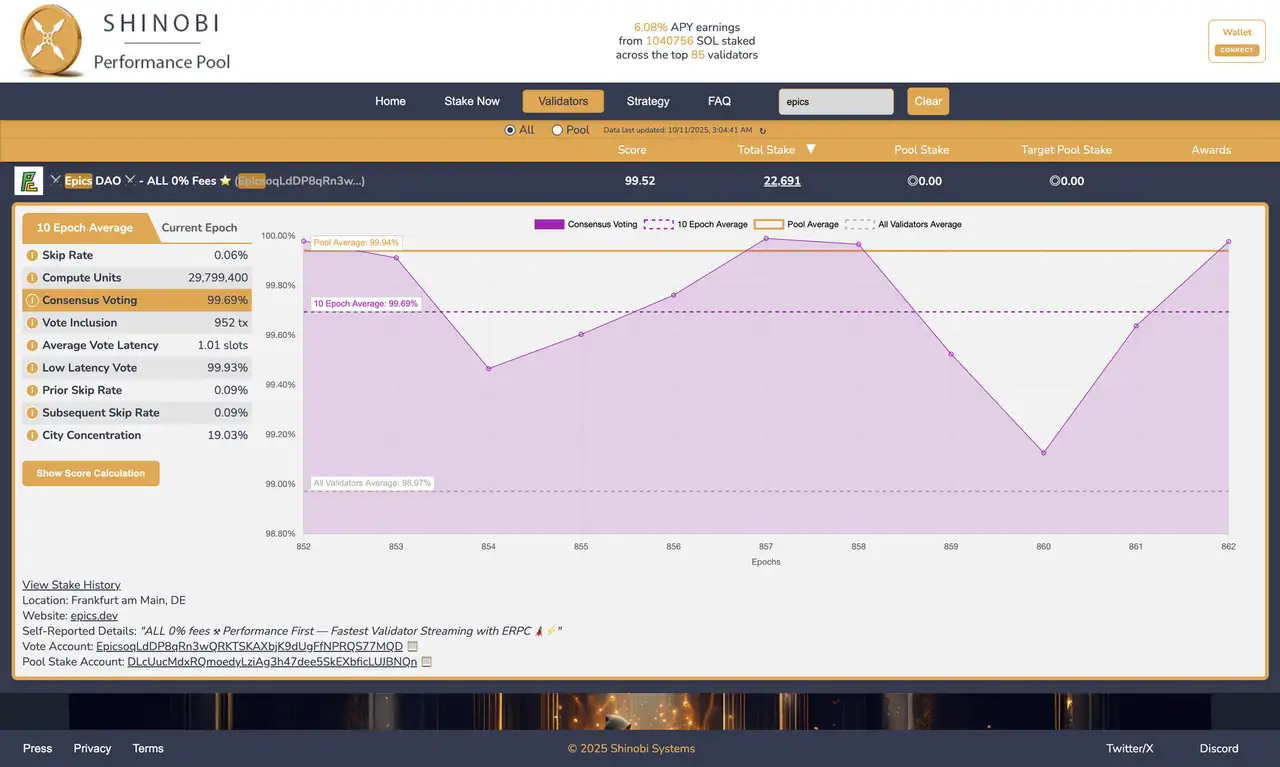
The Epics DAO Validator has steadily grown from an initial 10,000 SOL stake at the launch of the SWQoS service to surpass 20,000 SOL today. It operates with 0% commission and full Jito MEV compatibility, maximizing rewards distributed to stakers.
With the DoubleZero connection now in place, communication paths have become even shorter, further improving the validator’s Shinobi score. The validator continues to expand its stake, contributing to ERPC’s overall bandwidth capacity and supporting the continued growth of the Solana network.
Epics DAO Validator Address:
EpicsoqLdDP8qRn3wQRKTSKAXbjK9dUgFfNPRQS77MQDValidator performance (Shinobi Score): https://xshin.fi/#Validators?pubkey=EpicsoqLdDP8qRn3wQRKTSKAXbjK9dUgFfNPRQS77MQD
SWQoS RPC and Network Optimization
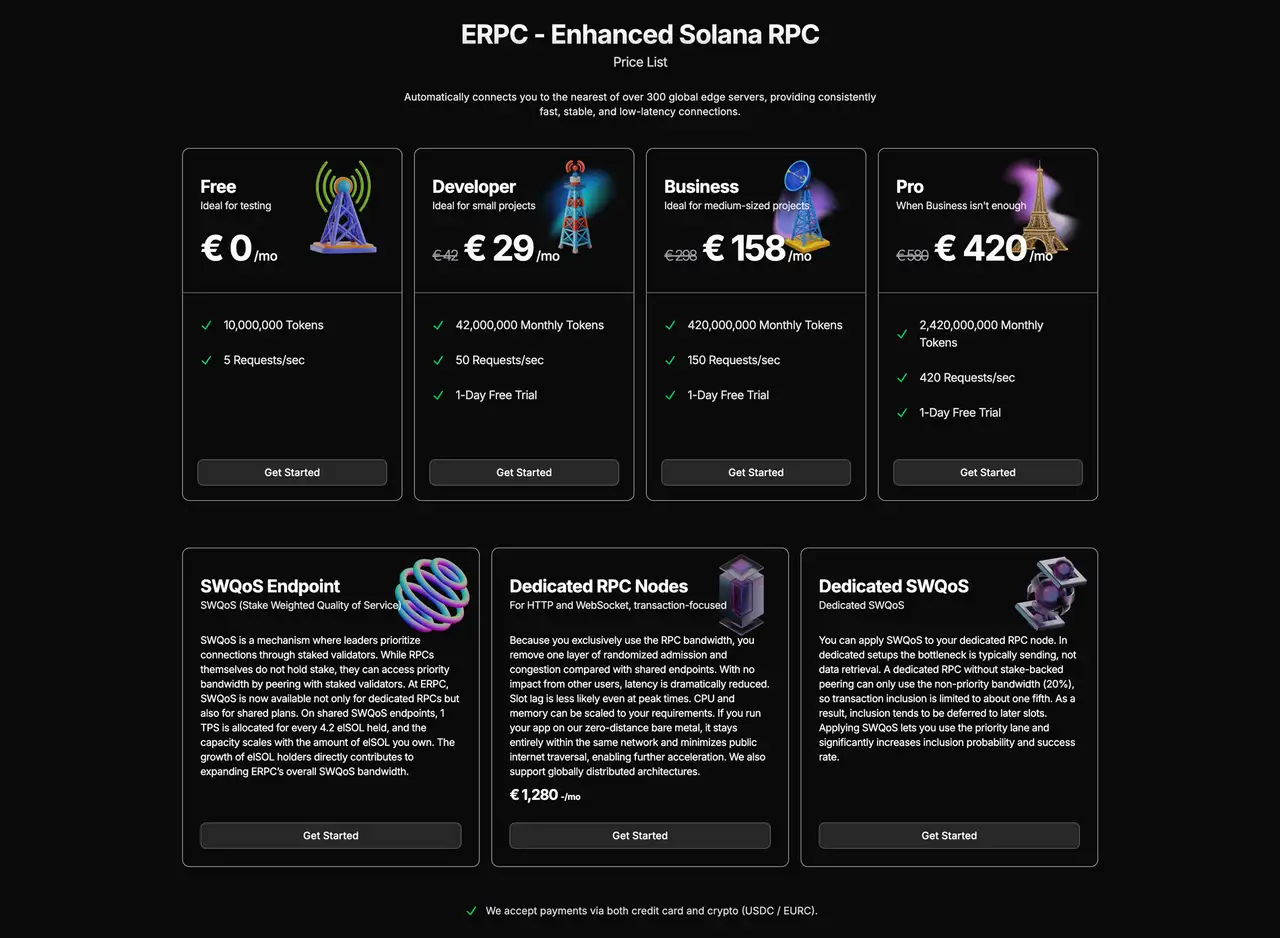
SWQoS (Stake Weighted Quality of Service) prioritizes validators that maintain stake-based connections. Solana leaders allocate about 80% of bandwidth to the priority lane and about 20% to the non-priority lane.
This prioritization takes effect before Priority fee evaluation. Therefore, increasing the Priority fee alone will not result in faster execution unless the transaction first enters the priority lane. To ensure access to the priority lane, three factors must align: sufficient SWQoS bandwidth through stake connection, consistent validator quality, and optimized communication routes achieved via DoubleZero.
With the DoubleZero integration, the SWQoS endpoint and Epics DAO validator are now connected on the same dedicated network, improving transaction transmission efficiency and latency. Consequently, SWQoS transactions within the Solana network are now processed more efficiently and with greater consistency.
Solana RPC Bundle Plan

The Bundle plan combines three connection methods—RPC, Geyser gRPC, and Shredstream—into a single package and also includes access to SWQoS bandwidth. Users already using RPC or Geyser gRPC can switch to the Bundle plan to gain access to Shredstream at no additional cost, making it ideal for production testing and performance evaluation.
Applications running stably on Geyser gRPC can gradually transition to higher-speed performance using Shredstream while maintaining operational stability. This configuration provides a practical and production-ready environment, serving as the standard setup for Solana-based projects.
For implementation or migration inquiries, please contact the Validators DAO official Discord:
https://discord.gg/C7ZQSrCkYR
https://discord.gg/C7ZQSrCkYR
Premium Ryzen VPS
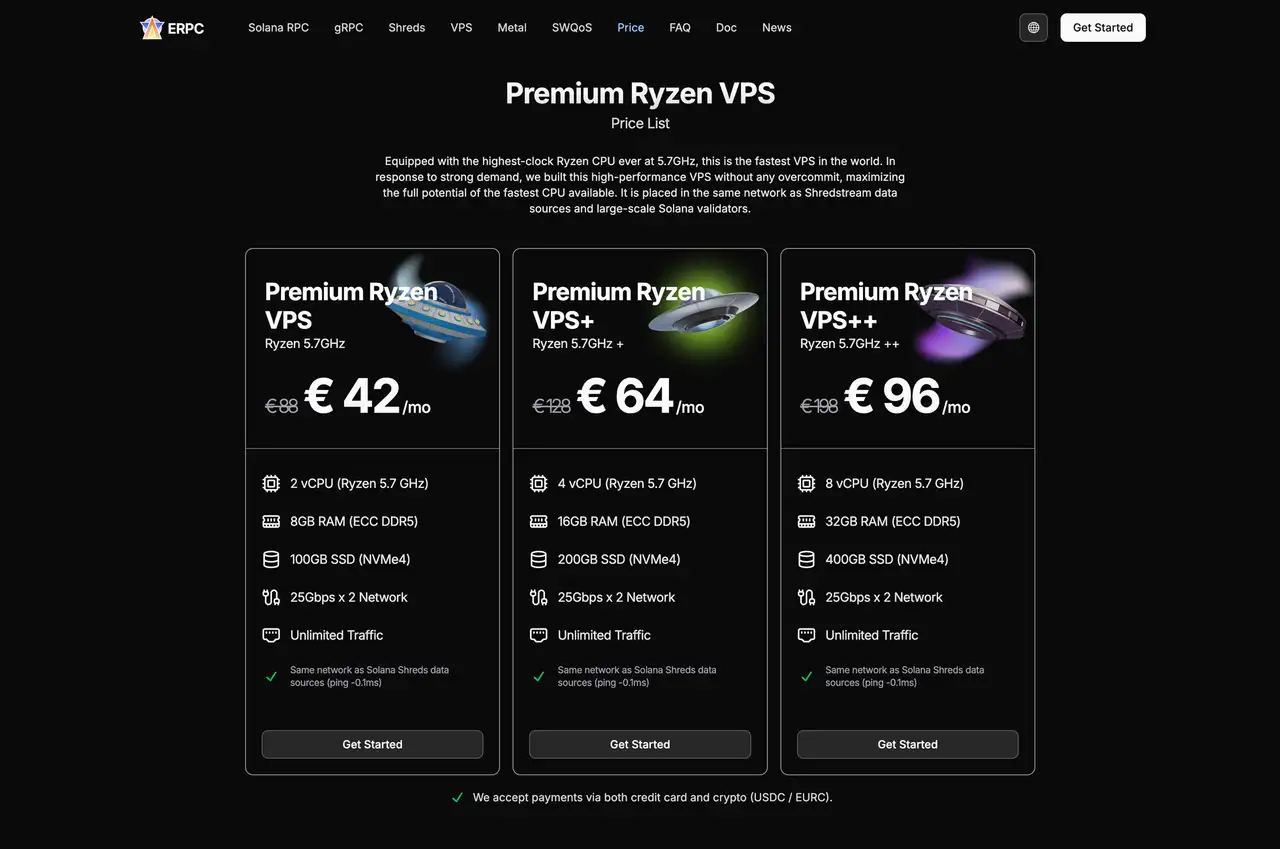
The Premium Ryzen VPS operates within the same network as ERPC, featuring a world-leading 5.7GHz high-clock CPU, ECC DDR5 memory, NVMe4 storage, and dual 25Gbps network interfaces. Designed with zero overcommitment, it delivers bare-metal-class performance even in a virtualized environment.
Deployed in the same data center as Jito Shredstream and major Solana validators, this zero-distance configuration eliminates internet-based latency. By combining computational and network performance, it provides an exceptionally stable and high-speed environment highly regarded by developers.
Validators DAO official Discord: https://discord.gg/C7ZQSrCkYR
Development Framework and SLV Open Source
We have advanced open-source development centered on SLV, enabling instant Solana node deployment, automated updates, and zero-downtime migration.
Through extensive test runs, we have continuously improved both ERPC and validator operations. By collaborating closely with trusted data center partners, we share these improvements with all users and stakeholders.
Going forward, we aim to expand an integrated ecosystem where validators, RPC providers, traders, and Web3 projects can collaborate effectively. Through aligned incentives, we will further enhance the efficiency and resilience of the Solana network. SLV open source remains a central pillar of this mission.
SLV GitHub: https://github.com/ValidatorsDAO/slv
Challenges ERPC and Validators DAO Solve
- Transaction failures and latency fluctuations common in general RPC environments
- Performance limitations imposed by many infrastructure providers
- The significant impact of network distance on connection quality
- Difficulty for smaller projects to access high-quality infrastructure
During the development of the open-source Solana NFT card game project Epics DAO, we faced the challenge of the limited availability of high-performance Solana infrastructure. In response, we built our own platform, applying that expertise to create ERPC and SLV.
Financial applications are particularly mission-critical, where latency and errors directly affect user experience. The distributed nature of validators and the unique Web3 architecture of Solana make the overall system complex, leading many projects to struggle with delays and instability.
We provide the high-performance foundation needed to overcome these challenges, improving both the development and user experience across the Solana ecosystem. ERPC and SLV are integral parts of this effort.
- ERPC Official: https://erpc.global/en
- SLV Official: https://slv.dev/en
- elSOL Official: https://elsol.app/en
- Epics DAO Official: https://epics.dev/en
- Validators DAO Official Discord: https://discord.gg/C7ZQSrCkYR


